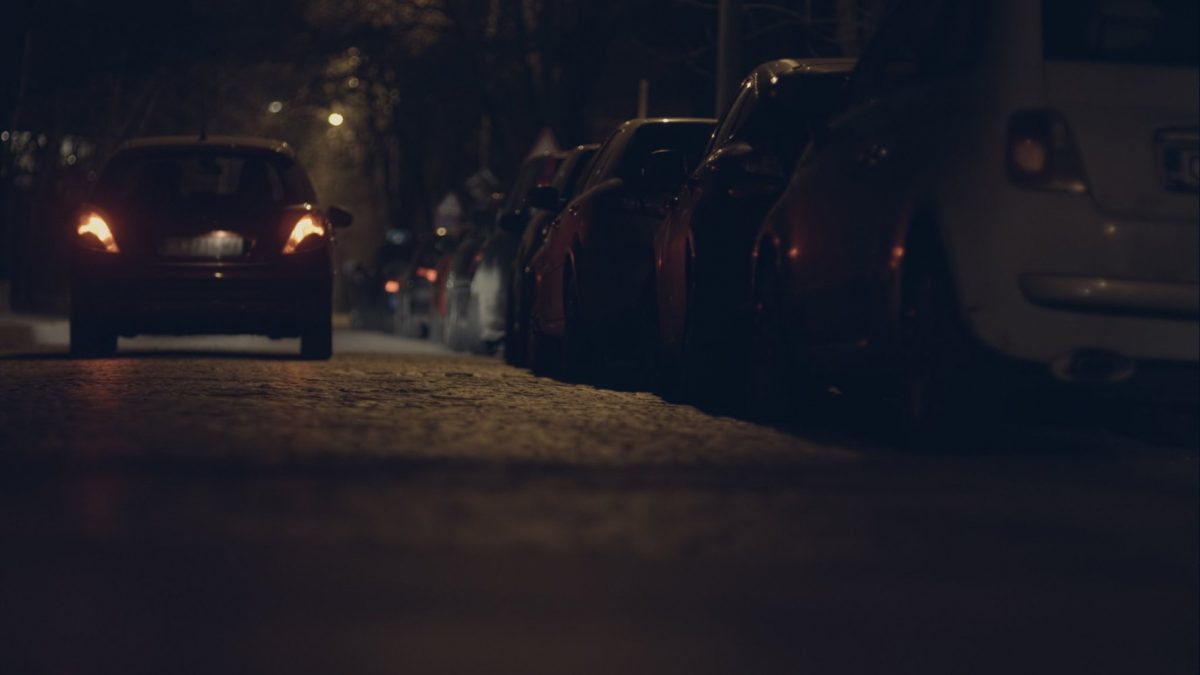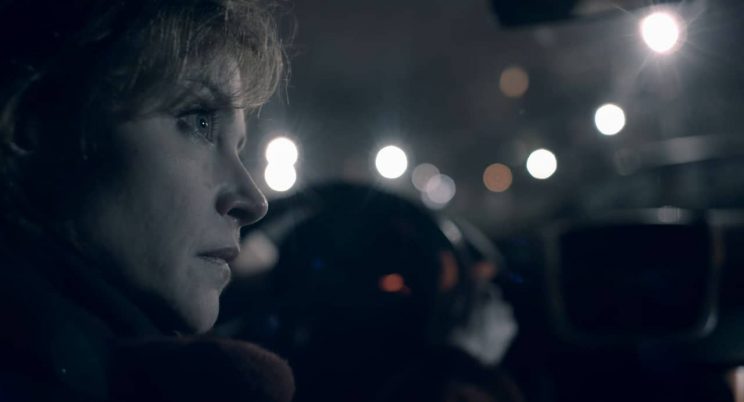Lyubo Yonchev’s subtle family drama depicts the consequences of an unintentional crime committed by Martin, a teenage boy. While we expect Martin to deal with the crime, the director cleverly betrays our expectations, leaving Lilly, Martin’s mother, to suffer all the consequences.
Primarily, this film relies on what is known to be the common denominator of the Millenials – avoiding responsibilities. When Martin hits a person by the car, he immediately tries to push things under the carpet, trying to explain the situation to his sister by using fairytale symbols, denying that anything wrong has happened. They have just hit a shooting star. When his mother finds out about it, he comes up with millions of excuses. None of the excuses is powerful enough to make the mother believe that this should all be forgotten.
The mother is self-tortured by the sense of guilt about the crime she hasn’t committed. Being a single mother, she always has to put an extra effort to provide the best for her kids. Finding out that her son is now in danger triggers the doubts that she hasn’t been a good mother. Taking over the guilt is her way of prolonging the fairytale of the safety for her kids and her redemption.
The kids are pretty clear and depicted with a dose of simplicity – they reject everything that puts them in danger and hold on tight to their plushy toys. The mother comes with layers of doubts, from the ones regarding her family position to the ones regarding a general sense of justice. Her self-victimizing emerges from her son’s inability to face his own deeds and the wish to protect him, but also from the human values her generation still sticks with.
After the foggy and moony crime scene, this film unrolls in a realistic fashion, evoking the story’s strong connection with the real life. In seemingly simple atmosphere we can notice the abundance of details giving us a precise social background, from the food they eat to the place they live in. The screenplay, co-written by Lyubo Yonchev and Yassen Grenadiev, is also very simple and minimalistic, emotionally driven, mostly relying on the precise visual language. The camerawork and editing work concisely, equalizing the pace of the action. The only thing that occasionally breaks the realistic consistency is overemphasized sentimental music, trying to enhance already powerful emotions. Yet, compared to the other cinematic qualities, this film’s single cinema sin embodied in the music seems more than forgivable.
The shooting star is dead – the kids have killed it almost without any regrets, forgetting its symbolistic meaning of hope and fulfilling dreams. Yet, their parents want them to still believe in the power of the shooting star, ready to take over their sins only to prolong their fairytale. The generations change and a question emerges – what will the kids of today do with the shooting stars of their own kids in the future?


